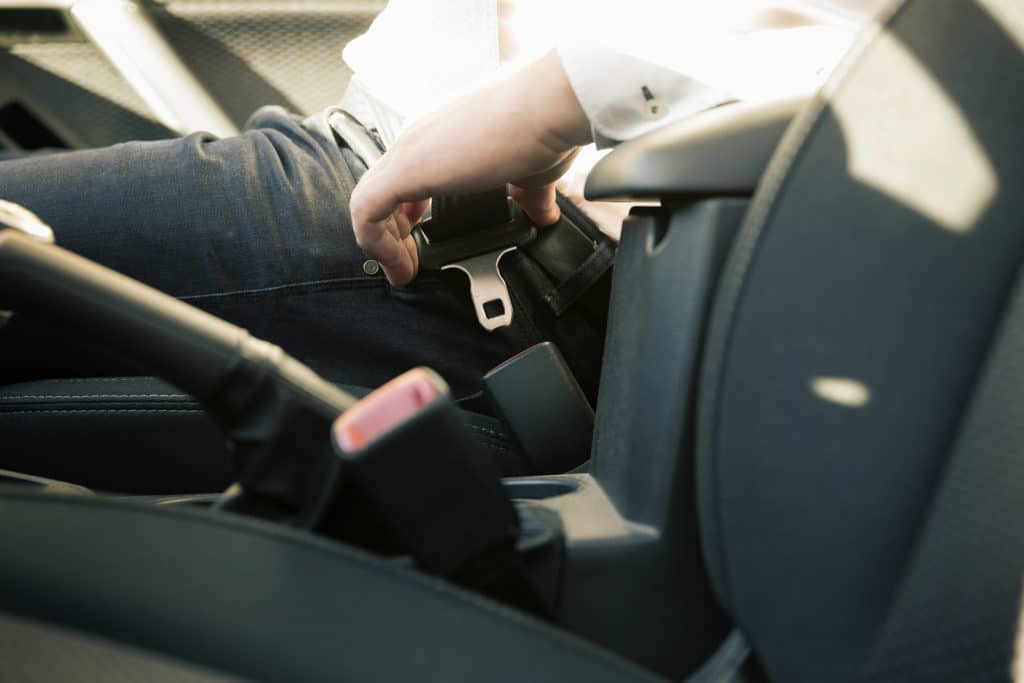Sending your child out on the road by themselves for the first time can be exciting, but also nerve-wracking. Statistically speaking, young, inexperienced drivers are much more likely to be involved in a crash than older, more experienced ones. As parents, this can be alarming. However, as parents, you have the power to help your child become a vigilant, safe driver. When you are teaching your child to drive you also need to get an insurance policy for your vehicle and child’s sake, here are ten safety tips you should teach them.
Leave Early
While some people speed because they like the feeling of driving fast, most people speed because they didn’t leave themselves enough time to get where they are going. By giving yourself a cushion of even a few extra minutes, you can get rid of your primary excuse to speed.
Position your seat correctly
You must assure that your seat is in the correct position so that you can easily manipulate the pedals. Your knees should not be in the dashboard, but you also should not have to overextend your leg to reach the pedals. If you share a car with someone else, you should make a habit of checking the seat’s positioning every time you get into the driver seat.
Wear seatbelts
It is amazing how many injuries and fatalities could be prevented by simply buckling up. While it may be uncomfortable and easy to forget, wearing your seatbelt is one of the easiest safety measures you can take any time you enter a car. As a driver, you are responsible for the passengers that enter your vehicle. So, in addition to buckling your own seatbelt, you should assure that every passenger in your car buckles theirs.
Don’t drive with emotions
When you get into the driver’s seat of a car, it is easy to let your emotions fuel the way you drive. If you’re angry, it’s important that you don’t allow that anger to cause you to do something rash. If you’re feeling on top of the world, that doesn’t mean you should speed because it feels good. Even if you’re sad, you don’t have a pass to go slow in the left lane.
Drive Defensively
When on the road, it is important to drive cautiously and thoughtfully, which means always being aware of the other cars. In addition to simply being aware, think about all the possibilities of what they could do. Do not assume that they will always do the right thing or that they will go where you think they should. If the car next to you swerves in front of you, you will be better prepared to respond if you already considered the possibility. An article from Arizona Driver recommends imagining driving like a sport: you have to defend yourself, your car, and your passengers from those who may get in your way.
Maintain distance
Tailgating is one of the most dangerous driving habits, so it’s important that you don’t do it. The higher the speed of the vehicles, the more distance you should maintain between you and the car in front of you. A good rule of thumb: you should try to keep three seconds distances between you and the car in front of you, especially when you are going fast
Use turn signals in advance
One of the most crucial ways drivers communicate with each other is through their turn signals. When you use your turn signals, you should put them on right before you begin slowing down to turn. This will give the car behind you time to process what they are seeing and slow down with you—even if they happen to be tailgating you. While that would not be your fault if you were rear-ended, it still is best to give a fair warning and avoid an accident.
Don’t text
driving a car requires your complete attention, so trying to read or type messages while you drive is simply a bad idea. While you may be able to watch the road, maintain your speed and direction, and type a message at the same time, you cannot also maintain awareness of the cars around you. Your peripheral vision and awareness become obsolete when you aren’t giving your full attention to the road. If it is urgent that you communicate with someone, pull over and give them a call or send them a text.
Avoid multitasking
It is not uncommon to see someone driving down the road while eating a messy meal or trying to finish their makeup. While it is tempting to save time by completing other tasks as you drive, that just isn’t safe. Every driver should put their full attention on the road, but that is especially true for new drivers.
Show caution with music
Almost every car has a stereo system in it. Most drivers take advantage by listening to the radio or playing their own music, which can be a great way to keep your mind active while you drive. However, music can also be a major distraction, especially for new drivers. When you are in the driver’s seat, keep the music volume low. If you crank the volume too much, you could prevent yourself from hearing the cars around you or cause yourself to lose focus.
Drive Defensively
This is one of the most
Get Covered
Even when they practice caution and understand good driving habits, younger drivers are more likely to get into car accidents. It’s important that you have the right insurance plan to cover those issues when they do arise. Let us help you find the plan that works for your family. Give us a call at (623) 583-7999. Our team is ready to help you find your ideal coverage.

